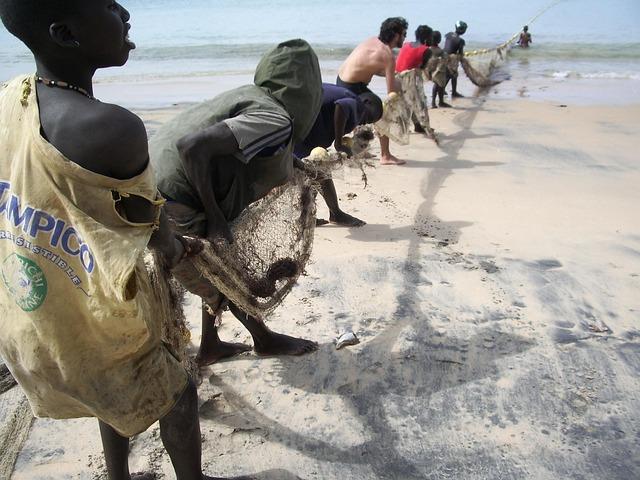In a significant milestone for public health in Africa, Senegal and Rwanda have both achieved the World Health Organization’s Maturity Level 3 in medicines regulation. This achievement underscores the commitment of these nations to enhance their regulatory systems, ensuring the safety, efficacy, and quality of medicines available to their populations. Maturity level 3 signifies that a country has established functioning regulatory systems that align with international standards, thereby fostering a robust environment for pharmaceuticals. This advancement not only reflects the strides made by Senegal and Rwanda in governance and accountability but also positions them as leaders in the regional effort to strengthen health systems across the continent. As the world grapples with health challenges exacerbated by the pandemic,these developments highlight the critical role of effective medicines regulation in protecting public health and enhancing access to essential therapies.
Senegal and rwanda Reach WHO Maturity Level 3 in Medicines Regulation
In a significant advancement for public health, Senegal and Rwanda have been recognized for achieving the World Health Organization’s (WHO) Maturity Level 3 in medicines regulation. This milestone reflects their commitment to ensuring the safety, efficacy, and quality of medicines within their borders. By meeting this level, these countries have demonstrated enhanced capabilities in the regulation of medical products, aligning with international standards. The WHO’s evaluation process assesses various aspects, including regulatory authority, framework, and capacity building. as a result, both nations are now better equipped to manage the approval process for new medicines, ensuring quicker access to essential health products for their populations.
This achievement not only elevates Senegal and Rwanda’s status in global health governance but also serves as a model for other nations aspiring to improve their medicines regulation systems. Key factors contributing to their success include:
- Increased Training: Investment in training regulatory personnel to enhance their expertise.
- Robust Regulatory Frameworks: Advancement of comprehensive laws and guidelines governing medicine approval and monitoring.
- Stakeholder Engagement: Involvement of health professionals,civil society,and the private sector in the regulatory process.
To further illustrate the progress made, the following table highlights notable milestones achieved by each country in their regulatory systems:
| Country | Milestone Achieved | Year |
|---|---|---|
| Senegal | Establishment of National Medicines Regulatory Authority | 2017 |
| Rwanda | Launch of e-Registration for Medicines | 2020 |
As both countries continue to strengthen their regulatory frameworks, such initiatives will not only foster greater public trust in healthcare systems but also promote regional collaboration on future health challenges. The recognition from the WHO positions both Senegal and Rwanda as leaders in ensuring comprehensive medicines regulation within Africa.
Implications of Maturity Level 3 for Public Health in Senegal and Rwanda
The achievement of WHO Maturity Level 3 in medicines regulation signifies a crucial advancement in public health for both Senegal and Rwanda. This milestone indicates that these nations possess robust regulatory systems ensuring the quality, safety, and efficacy of medicines. Effectively, this will lead to enhanced public trust in health care systems, as citizens can be assured that the medications they consume meet stringent international standards. Stronger regulatory frameworks also act as a barrier to counterfeit drugs, which pose a significant risk to public health, particularly in low- and middle-income countries that frequently enough experience challenges in monitoring medicinal products.
Furthermore, level 3 compliance will catalyze substantial benefits for local health systems, including:
- Improved access to essential medicines, including life-saving treatments.
- Better alignment with global trade practices, aiding local pharmaceutical industries.
- Increased investment opportunities from international pharmaceutical companies,fostering economic growth.
These benefits will ultimately contribute to achieving broader health goals such as universal health coverage and the control of communicable diseases, positioning Senegal and Rwanda as leaders in public health within the African continent.
Key Achievements Leading to WHO Recognition
Senegal and Rwanda’s achievement of WHO Maturity Level 3 in medicines regulation marks a significant milestone in their healthcare systems. This prestigious recognition reflects a series of diligent efforts and strategic improvements aimed at enhancing the standards of medicine quality and safety. Among the key accomplishments that contributed to this success are:
- Strengthening Regulatory Frameworks: Both countries implemented comprehensive legal frameworks that support efficient regulation and monitoring of pharmaceuticals.
- Capacity Building Initiatives: Extensive training programs for regulatory staff were introduced,equipping them with the necessary skills and knowledge to oversee medication safety.
- Enhanced Collaboration: Senegal and Rwanda established partnerships with international health bodies, facilitating knowledge transfer and best practices in medicine regulation.
- Robust Monitoring Systems: The establishment of rigorous pharmacovigilance systems ensured that drug safety and efficacy were continuously assessed post-approval.
Additionally, the commitment to continuous quality improvement and adherence to international standards played a crucial role in reaching this level of maturity. A remarkable advancement was the implementation of advanced technological solutions that streamlined the registration process for new medicines, considerably reducing timeframes while ensuring thorough evaluations. The following table summarizes the essential interventions that led to the notable recognition:
| Intervention | Impact |
|---|---|
| Legal Reforms | Facilitated timely and efficient medicine registration. |
| Training Programs | Enhanced competency of regulatory staff. |
| International Collaboration | Increased access to global best practices. |
| Pharmacovigilance | Improved drug safety monitoring post-market. |
Challenges Ahead for Sustainable Medicines Regulation
The recent achievement of Senegal and rwanda in attaining WHO Maturity Level 3 in medicines regulation marks a significant step forward for these countries. Though, this progress does not come without its obstacles. Ensuring sustainable regulation of medicines requires addressing several pressing challenges,such as:
- Capacity Building: developing a robust regulatory framework necessitates ongoing training and education for personnel involved in the regulatory process.
- Resource Allocation: Sustainable medicines regulation often competes with other pressing health needs for finite resources, which can hinder efforts to maintain quality oversight.
- Technology Integration: Keeping pace with technological advancements in pharmaceuticals requires investment in new tools and systems, which may strain existing budgets.
Furthermore,collaboration among various stakeholders is essential to navigate these complexities. Effective dialogue channels must be established within and between national regulatory authorities, international organizations, and the pharmaceutical industry. Creation of strategic partnerships can definitely help in sharing knowledge and best practices. To illustrate the importance of these collaborations, consider the following table outlining potential partnerships and their contributions:
| Stakeholder Group | Potential Contribution |
|---|---|
| Government Agencies | Policy formulation and oversight |
| Non-Governmental organizations | Advocacy for public health interests |
| Pharmaceutical Companies | Innovative medicines and technologies |
| Academic Institutions | Research and training opportunities |
Recommendations for Strengthening Regulatory Frameworks
To build upon the successes of Senegal and Rwanda in achieving the World Health Organization’s Maturity Level 3 in medicines regulation, it is indeed imperative to implement several strategies aimed at strengthening regulatory frameworks across the region. Collaboration between nations can foster a sharing of best practices, enabling continuous improvement among regulatory agencies. Engaging with international organizations, such as the WHO and regional bodies, can lead to harmonization of standards and reduced duplication of efforts. Moreover, capacity building through training sessions and workshops is crucial to enhance the skills of regulatory personnel, empowering them to navigate the complexities of modern pharmaceuticals.
Furthermore, the establishment of robust legal frameworks is vital for ensuring compliance and accountability within medicine regulation.This should include the development of clear guidelines and enforcement mechanisms to deter malpractices. Investment in technology is also essential; implementing electronic systems for the tracking and monitoring of medicinal products can significantly streamline processes and improve openness. Below is a table summarizing key actions for enhancement:
| Action | Description |
|---|---|
| Collaboration | Share best practices among countries to improve regulations. |
| Capacity Building | Train regulatory personnel in new pharmaceutical regulations. |
| Legal Frameworks | Develop clear guidelines and enforcement practices. |
| Technology Investment | Implement systems for tracking and monitoring medications. |
The Path Forward: Collaborating for Regional Health Initiatives
The recent achievement of Senegal and Rwanda in attaining WHO Maturity Level 3 in medicines regulation marks a significant milestone for both countries, propelling them into a new era of healthcare governance. This advancement is not solely an accolade; it underscores the importance of comprehensive regulatory frameworks that ensure the safety, efficacy, and quality of medicines. Such frameworks are critical for fostering public trust and enhancing health outcomes across the region. By prioritizing collaboration between governmental agencies, healthcare providers, and international organizations, both nations can harness their regulatory successes to improve access to essential medicines and align better with global standards.
Collaborative efforts must extend beyond individual nations to include regional partnerships, thereby creating a unified strategy for health initiatives. Engagement in joint training programs, knowledge sharing, and resource allocation can pave the way for replicating the triumphant practices observed in senegal and Rwanda. Moreover, stakeholder engagement will be essential in addressing the unique challenges faced in various contexts. To facilitate this, a table summarizing potential collaborative opportunities is outlined below:
| Collaborative Opportunities | Potential Benefits |
|---|---|
| Joint Regulatory Training Sessions | Enhanced skills and knowledge exchange among regulators. |
| Regional Medicine Quality Assurance Programs | Increased consumer confidence and safety in pharmaceuticals. |
| Data Sharing Platforms for Adverse Drug Reactions | Strengthened monitoring and response mechanisms. |
| Collaborative Research Initiatives | Improved local data on health outcomes and medicine use. |
To Conclude
the recent achievement of World Health Organization (WHO) Maturity Level 3 in medicines regulation by Senegal and Rwanda marks a significant milestone in the ongoing efforts to enhance pharmaceutical governance within Africa. This accomplishment not only underscores the commitment of these nations to ensuring the safety and efficacy of medicines but also reflects a broader trend of strengthening healthcare systems across the continent. As Senegal and Rwanda set an example of regulatory excellence, their success paves the way for other countries to follow suit, fostering a more robust and resilient framework for public health. With continued support and collaboration from international partners, the journey toward enhanced health outcomes for all Africans can progress further, ensuring that quality medicines are accessible to those in need. The spotlight now shifts to other nations to adopt similar strategies and elevate their medication regulatory frameworks, ultimately contributing to the global goal of improved health security.

